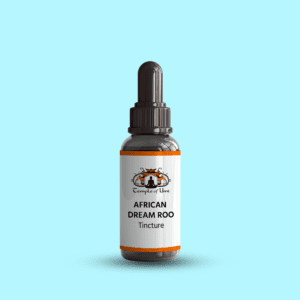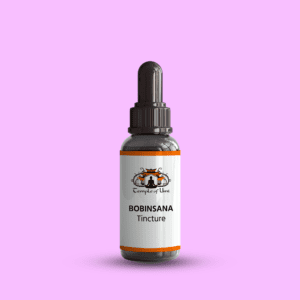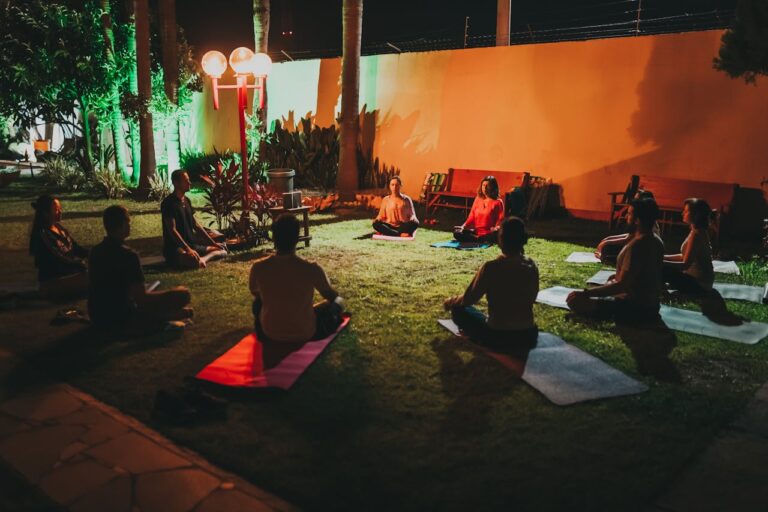Mental health and ayahuasca
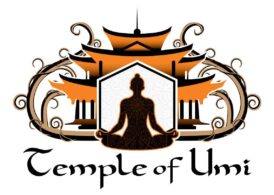
By Temple of Umi
Table of Contents
Explore the transformative intersection of mental health and ayahuasca. Learn how this ancient brew is being studied for its potential to heal depression, anxiety, and PTSD, and what experts say about its efficacy and safety.
Introduction
Ayahuasca, a brew with deep roots in the spiritual and medicinal practices of Indigenous tribes in the Amazon basin, has captivated global attention. This ancient concoction, made from the Banisteriopsis caapi vine and the Psychotria viridis shrub, is renowned for its psychoactive properties, which induce altered states of consciousness. In recent years, the spotlight has turned toward ayahuasca’s potential in mental health treatment, sparking both curiosity and controversy. This article delves into the enigmatic world of ayahuasca, exploring its history, traditional uses, and journey into Western societies. Readers will embark on an enlightening journey, uncovering the complexities of this potent brew and its implications for mental wellness.
Understanding Ayahuasca
What is Ayahuasca? Composition and Psychoactive Properties
Ayahuasca is more than just a drink; it blends two primary ingredients: the Banisteriopsis caapi vine and the Psychotria viridis shrub. The vine provides harmala alkaloids and monoamine oxidase inhibitors (MAOIs), while the shrub contains N, N-Dimethyltryptamine (DMT), a potent psychedelic substance. These components combine to create a powerful synergistic effect, leading to profound changes in consciousness, perception, and emotion. The brew’s unique composition is pivotal in its ability to profoundly affect the human psyche, making it a subject of fascination and research in mental health. Learn more.
The Traditional Use of Ayahuasca in Indigenous Ceremonies
For centuries, ayahuasca has been a cornerstone in the spiritual and healing practices of various Indigenous communities across the Amazon. These ceremonies, led by a shaman or spiritual leader, are considered sacred rituals that cleanse the body and mind, allowing individuals to confront their fears, traumas, and emotions directly. The ceremonial use of ayahuasca is deeply embedded in the cultural fabric of these communities, highlighting its significance not just as a substance but as a spiritual conduit for healing and enlightenment.
Ayahuasca’s Journey into Western Societies
The allure of ayahuasca has transcended its traditional boundaries, making its way into Western cultures in search of spiritual depth and mental health solutions. This migration has sparked a complex dialogue surrounding spirituality, medicine, and the legality of psychoactive substances. As researchers begin to untangle the therapeutic potential of ayahuasca for conditions such as depression, PTSD, and addiction, its integration into Western medicine faces both skepticism and optimism. This cultural and scientific crossover illustrates the growing search for alternative mental health treatments and the challenges of bridging Indigenous wisdom with modern therapeutic practices.
The Science Behind Ayahuasca and Mental Health
Overview of Scientific Research on Ayahuasca’s Effects on the Brain Ayahuasca, a traditional Amazonian brew with psychoactive properties, has caught the attention of the scientific community for its potential impact on mental health. Recent studies delve into how this ancient remedy influences brain chemistry, shedding light on its profound effects. Ayahuasca contains DMT (N, N-Dimethyltryptamine), which promotes the release of various neurotransmitters, offering insights into its therapeutic possibilities.
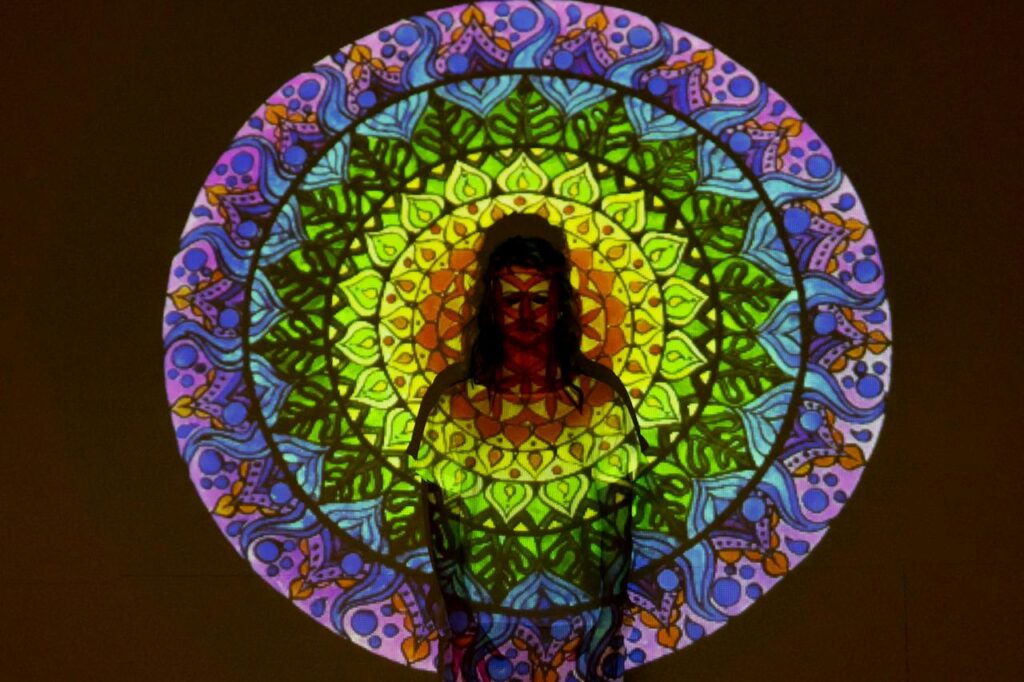
Ayahuasca and Its Impact on Neurological Pathways Associated with Mental Health
- Enhancement of Neural Plasticity: Research indicates ayahuasca may enhance neural plasticity, the brain’s ability to adapt to new experiences, potentially repairing damage caused by stress and depression.
- Regulation of Mood-Related Neurotransmitters: Ayahuasca’s interaction with serotonin receptors plays a crucial role in mood regulation, offering a pathway to alleviate symptoms of mood disorders.
- Reduction in Default Mode Network (DMN) Activity: Studies suggest ayahuasca reduces activity in the DMN, linked to self-referential thoughts and the worsening of conditions like depression and anxiety.
Case Studies and Research Findings: The Therapeutic Potential of Ayahuasca A growing body of case studies highlights ayahuasca’s potential as a therapeutic agent. Participants in these studies often report significant reductions in symptoms of mental health disorders, supported by both qualitative and quantitative data. These findings underscore the need for further research to fully understand ayahuasca’s capabilities and limitations as a treatment option.
Ayahuasca as a Treatment for Mental Health Disorders
Ayahuasca’s Role in Treating Depression: A Closer Look
- Immediate Emotional Release: Many report a profound emotional release during ayahuasca ceremonies, which can initiate a healing process for those struggling with depression.
- Long-Term Mood Improvement: Follow-up studies with participants show a sustained improvement in mood and outlook, suggesting long-term benefits of ayahuasca treatment.
Anxiety and PTSD: Can Ayahuasca Provide Relief?
- Reduction of Anxiety Symptoms: Preliminary research indicates ayahuasca may reduce anxiety symptoms in individuals for whom traditional treatments have fallen short.
- Potential to Process Traumatic Memories: Ayahuasca could offer a therapeutic environment for processing traumatic memories, a critical component in PTSD treatment.
The Therapeutic Process: What to Expect from an Ayahuasca Experience
- Preparation and Integration: Proper preparation and post-experience integration are crucial to maximizing the therapeutic benefits of ayahuasca. This often involves working with experienced facilitators or healers.
- The Experience Itself: Ayahuasca ceremonies typically involve deep introspection and can evoke emotions and visions, contributing to personal growth and healing.
- Safety Considerations: It’s crucial to approach ayahuasca with caution, as the Experience can be intense and not suitable for everyone. Engaging in ceremonies led by reputable and experienced practitioners is advised.
Controversies and Challenges
Legal Status of Ayahuasca Around the World
- Ayahuasca’s legal standing varies significantly from country to country. In some regions, it’s classified under controlled substances; in others, its use is permitted within religious or traditional contexts.
- Nations like Brazil and Peru have recognized the traditional and religious significance of ayahuasca, allowing its use under specific guidelines. Conversely, in many Western countries, ayahuasca ingredients fall under strict drug regulations, complicating its legal accessibility.
Safety Concerns and Potential Risks of Ayahuasca Use
- The psychedelic nature of ayahuasca raises safety and health concerns. Potential risks include severe psychological distress and the worsening of pre-existing mental health conditions.
- Physically, ayahuasca can lead to uncomfortable side effects such as nausea, vomiting, and increased heart rate. Its interaction with other medications, particularly psychiatric drugs, can be hazardous.
Ethical Considerations: Cultural Appropriation and the Commercialization of Ayahuasca
- The surge in ayahuasca’s global popularity has sparked debates on cultural appropriation. Critics argue that the commodification of this sacred brew disrespects and dilutes its indigenous roots.
- The commercialization of ayahuasca ceremonies, often targeting tourists, raises questions about the exploitation of traditional knowledge and practices for profit, potentially straying from the original spiritual and healing intentions.
Personal Stories and Experiences
Interviews with Individuals Who Have Participated in Ayahuasca Ceremonies
- Accounts from participants reveal a spectrum of experiences, ranging from profound spiritual awakenings to intense emotional upheavals.
- Many describe their journeys with ayahuasca as a pivotal moment in their mental health, offering insights and breakthroughs that were previously unreachable through conventional therapies.
The Emotional and Spiritual Impact of Ayahuasca on Mental Health
- Testimonies often highlight the deep emotional cleansing and spiritual insights gained, facilitating a unique form of healing. Individuals report overcoming issues like depression, anxiety, and trauma.
- The spiritual aspect of ayahuasca ceremonies, including the connection to nature and the feeling of oneness, plays a crucial role in this transformative process.
Healing Journeys: Transformative Experiences and Challenges Faced
- While many recount positive and life-altering changes, the path to healing is full of challenges. The intensity of ayahuasca experiences can be overwhelming, bringing forth tricky emotions and memories.
- The integration process post-ceremony is vital as individuals work to apply the insights and lessons learned into their daily lives. Support systems, including therapy and community discussions, are crucial to navigating the complexities of this journey.
Preparing for an Ayahuasca Experience
Ayahuasca, a traditional Amazonian brew known for its psychedelic properties, has garnered attention for its potential in treating various mental health issues. Preparing for an ayahuasca ceremony involves several vital steps to ensure a safe and transformative experience. Here’s how to prepare mentally, physically, and spiritually for your journey.
How to Prepare Mentally and Physically for an Ayahuasca Ceremony
- Mental Preparation:
- Research thoroughly: Understand the effects of ayahuasca, including the potential for intense emotional and visual experiences.
- Meditation and Reflection: Spend meditation or quiet reflection to clear your mind and set intentions.
- Counseling: Consider talking to a therapist or counselor about your intentions, fears, or hopes regarding the Experience.
- Physical Preparation:
- Dietary adjustments: Follow a diet (diet) recommended by your facilitator, often involving abstention from spicy foods, alcohol, and caffeine to purify your body.
- Rest: Ensure you’re well-rested before the ceremony, as the Experience can be physically demanding.
Finding a Reputable Shaman or Facilitator
- Research and Recommendations: Look for recommendations from trusted sources and read reviews of others’ experiences.
- Qualifications and Experience: Verify the shaman’s or facilitator’s qualifications and understand their approach to the ceremony.
- Safety Practices: Ensure they prioritize safety, including having measures in place for managing intense experiences and medical emergencies.
Setting Intentions and Navigating the Experience for Therapeutic Benefits
- Setting Intentions: Clearly define what you wish to achieve or confront during your Experience. This can range from seeking healing from trauma to understanding personal issues more deeply.
- Openness and Surrender: Approach the Experience with an open mind and heart, ready to accept and process whatever comes your way.
- Integration: Plan for integration sessions post-ceremony to process and understand your Experience, often with the help of a guide or therapist.

Final words
Ayahuasca has shown promise as a tool for mental health treatment, offering profound insights and emotional healing for some. However, it’s essential to approach cautiously, understanding its potential benefits and limitations.
- Potential and Limitations: While ayahuasca can offer significant therapeutic benefits, it’s not a cure-all and works best within a broader treatment plan.
- The Future of Ayahuasca: Ongoing research into ayahuasca’s effects on mental health promises to deepen our understanding and potentially integrate it more fully into therapeutic practices.
- Encouragement for Further Reading and Consultation: Anyone considering ayahuasca for mental health should engage in thorough research, consult healthcare professionals, and seek out reputable guides or shamans.
The journey with ayahuasca is profoundly personal and varies widely among individuals. Proper mental and physical preparation and professional guidance can make all the difference in harnessing its potential for mental health and personal growth.
- Sacred Plant Medicine Retreats in Georgia
- 5 Ayahuasca Retreats in California Worth Exploring
- 7 Best Aya Retreats in America. Click here.
- Mcdonough Ayahuasca retreat
- Conley Ayahuasca retreat
- Whitesburg Ayahuasca retreat
- Brooks Ayahuasca retreat
- Gay Ayahuasca retreat
- Williamson Ayahuasca retreat
- Orchard Hill Ayahuasca retreat
- Glenn Ayahuasca retreat
- Luthersville Ayahuasca retreat
- Shady Dale Ayahuasca retreat
- Bowdon Junction Ayahuasca retreat
- Sargent Ayahuasca retreat
- Greenville Ayahuasca retreat
- Lovejoy Ayahuasca retreat
- Winston Ayahuasca retreat
- Rutledge Ayahuasca retreat
- Moreland Ayahuasca retreat
- Molena Ayahuasca retreat
- Lebanon Ayahuasca retreat
- Good Hope Ayahuasca retreat
- Haralson Ayahuasca retreat
- An Inclusive List of Psychedelic Quotes
- Mount Ayahuasca retreat
- Grantville Ayahuasca retreat
- Pine Lake Retreat near
- Rydal Ayahuasca retreat
- Porterdale Ayahuasca retreat
- Waco Ayahuasca retreat
- Temple Ayahuasca retreat
- Bethlehem Ayahuasca retreat
- Jenkinsburg Ayahuasca retreat
- Adairsville Ayahuasca retreat
- Red Oak Ayahuasca retreat
- Woodbury Ayahuasca retreat
- Cassville Ayahuasca retreat
- Redan Ayahuasca retreat
- North Decatur Ayahuasca retreat
- Grantville Ayahuasca retreat
- Hillsboro Ayahuasca retreat
- Jackson Ayahuasca retreat
- Braselton Ayahuasca retreat
- Zebulon Ayahuasca retreat
- Flovilla Ayahuasca retreat
- Auburn Ayahuasca retreat
- Warm Springs Ayahuasca retreat
- Scottdale Ayahuasca retreat
- Lithia Springs Ayahuasca retreat
- Villa Rica Ayahuasca retreat
- Grayson Ayahuasca retreat
- Sunny Side Ayahuasca retreat
- Senoia Ayahuasca retreat
- Locust Grove Ayahuasca retreat
- Chamblee Ayahuasca retreat
- Fairburn Ayahuasca retreat
- Snellville Ayahuasca retreat
- Monticello Ayahuasca retreat
- Union City Ayahuasca retreat
- Tallapoosa Ayahuasca retreat
- Bremen Ayahuasca retreat
- Hampton Ayahuasca retreat
- Monroe Ayahuasca retreat
- Marble Hill Ayahuasca retreat
- Madison Ayahuasca retreat
- Dawsonville Ayahuasca retreat
- Felton Ayahuasca retreat
- Concord Ayahuasca retreat
- Mansfield Ayahuasca retreat
- Taylorsville Ayahuasca retreat
- Roopville Ayahuasca retreat
- Turin Ayahuasca retreat
- Franklin Ayahuasca retreat
- Clarkdale Ayahuasca retreat
- Talking Rock Ayahuasca retreat
- Jersey Ayahuasca retreat
- Kingston Ayahuasca retreat
- Bostwick Ayahuasca retreat
- North Metro Ayahuasca retreat
- Meansville Ayahuasca retreat
- Social Circle Ayahuasca retreat
- White Ayahuasca retreat
- Rhode Island Ayahuasca retreat
- Maryland Ayahuasca retreat
- Delaware Ayahuasca retreat
- New Jersey Ayahuasca retreat
- Connecticut Ayahuasca retreat
- Massachusetts Ayahuasca retreat
- Hampshire Ayahuasca retreat
- Pennsylvania Ayahuasca retreat
- New York Ayahuasca retreat
- Florida Ayahuasca retreat
- South Carolina Ayahuasca Retreat
- North Carolina Ayahuasca Retreat
- West West Virginia Ayahuasca retreat
- Virginia Ayahuasca retreat
- Ohio Ayahuasca retreat
- Alabama Ayahuasca retreat
- Mississippi Ayahuasca retreat
- Tennessee Ayahuasca retreat
- Kentucky Ayahuasca retreat
- IndianaAyahuasca retreat
- ILLINOIS Ayahuasca retreat
- Missouri Ayahuasca retreat
- Arkansas Ayahuasca retreat
- Louisiana Ayahuasca retreat
- Texas Ayahuasca retreat
- Oklahoma Ayahuasca retreat
- KansasAyahuasca retreat
- Ayahuasca retreats near me in Experiment.
- A wellness retreat in Georgia
- What is Ayahuasca?
- Embark on a Journey of Transformation with Spiritual Healing
- Unveiling Healing Energy at the Temple of Umi
- 10 Energy Healing Techniques to Transform Your Life
- Where to get Ayahuasca in the USA
- Top Ayahuasca retreats in the USA. Learn more.
- Cost of Ayahuasca Retreat: Balancing Cost and Experience. Learn more.
- What is trauma bonding?
- A Journey into the Healing Properties of Psychedelic Mushrooms. Learn more.
- Ayahuasca Retreat Georgia – Experience Spiritual Awakening
- Spiritual Retreats Georgia
- Shaman in America Exploration
- Shamanism – Shamanic healing
- Shaman Healing Guide
- Ayahuasca ceremonies Ayahuasca ceremonies near you in the USA
- Ayahuasca Experience
- DMT Journey, Benefits, and Side Effects
- Iowaska – What is it?
- Plant medicine retreats in Georgia
- Why massage is beneficial, according to a cardiologist.
- Are mushrooms truffles – What Is a Truffle?
- 11 Best Ayahuasca Retreats in the USA for Spiritual Healing
- What is Rapé?
- What is a Tincture?
- Where to find Ayahuasca near me
- Healing retreats USA
- Best Retreats USA

